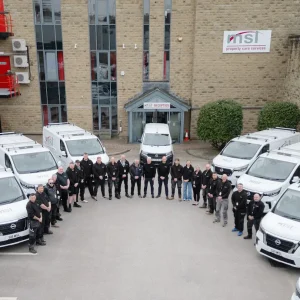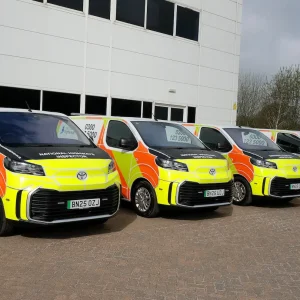Councils could provide preferential delivery bays for businesses with ultra-low emission vans, a Government whitepaper has hinted.
Businesses will also be advised to partake in compliance schemes such as FORS (Fleet Operator Recognition Scheme) in order to prove their environmental credentials, the document added.
Published today (5 May 2017), the Government’s draft whitepaper details how it plans to improve air quality in the UK, with a final version due to be published on 31 July following a consultation.
According to the Department for Environment, Food and Rural Affairs (Defra), the document details a list of measures “which are designed to reduce the impact of diesel vehicles and accelerate the move to cleaner transport.”
According to Defra, “local authorities are already responsible for improving air quality in their area” and will “now be expected to develop new and creative solutions to reduce emissions as quickly as possible.”
The draft whitepaper focuses on Clean Air Zones, something Defra has been mooting for a while and does not make reference to diesel scrappage schemes.
According to the document, the minimum standard for vehicles to avoid a charge for entering the zones is Euro 6 for diesel vans and Euro 4 for petrol vehicles. It added that “ultra-low emission vehicles with significant zero-emission range will never be charged for entering or moving through a Clean Air Zone.”
At present, no levels of charging have been published; they are due to be set “at a later date”, but it is likely the framework may ape that of the forthcoming London Ultra-Low Emission Zone which will charge drivers of non-compliant vehicles £12.50 on top of the £11.50 daily Congestion Charge.
However, Clean Air Zones proposals “are not required to include a charging zone.”
The framework also notes that local authorities procuring vehicles for use inside the zones must ensure the vehicles conform to the standards, while it added authorities will need to develop incentives to encourage employees to address their impact on air quality.
Gary Rae, campaigns director for road safety charity Brake, criticised the Government for placing much of the responsibility on local councils.
“It appears the Government has abdicated responsibility for reducing air pollution to local authorities. If any issue needs tackling on a national – and international – level, it’s this one. We have a national health emergency, and the Government is kicking the issue into the long grass.”
Mike Hawes, SMMT Chief Executive, added: “SMMT welcomes the publication of government’s proposals for improving air quality across the UK, which clearly states that the new Euro 6 diesels which have been on sale for the past two years will not face any penalty charges anywhere in the UK.”





